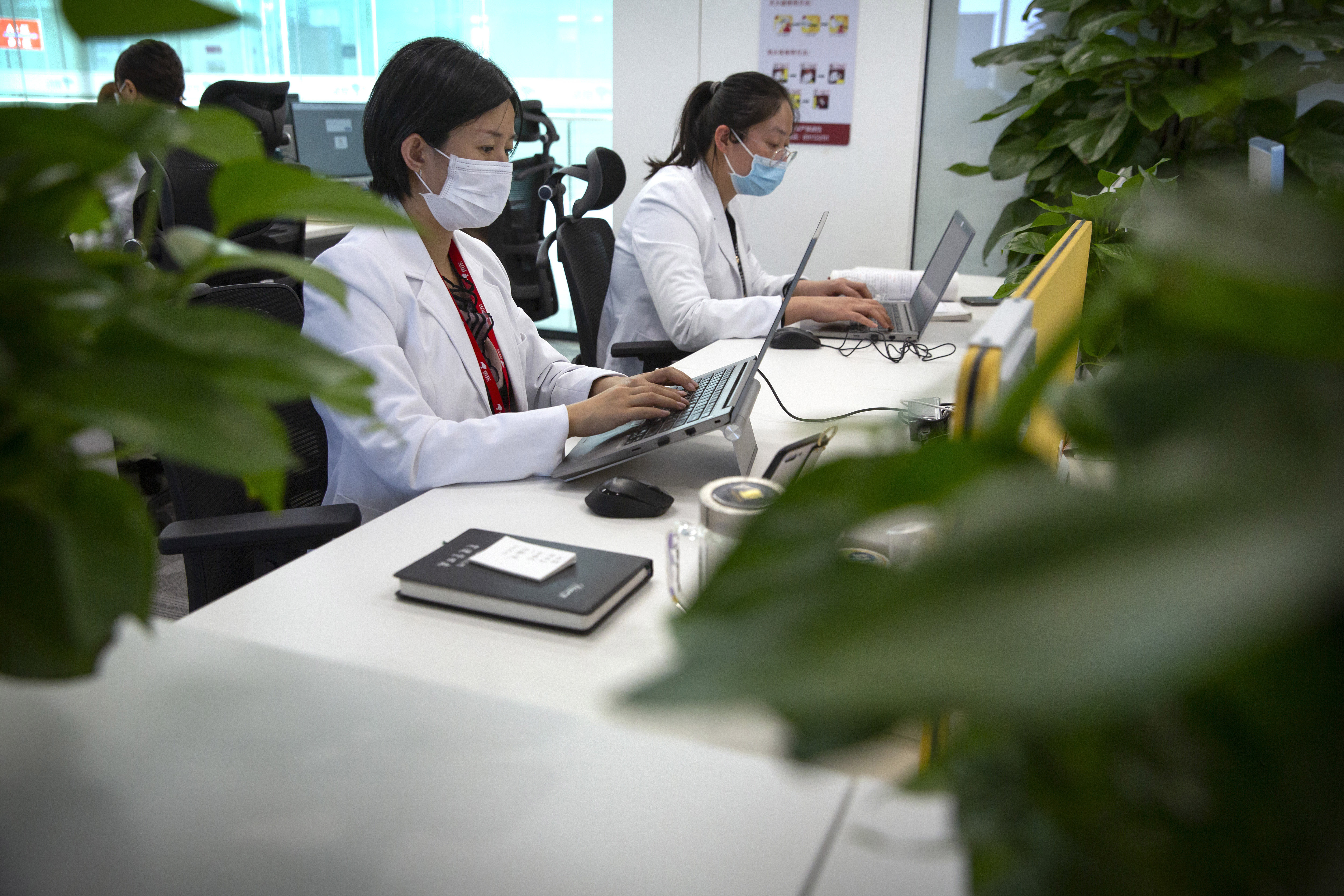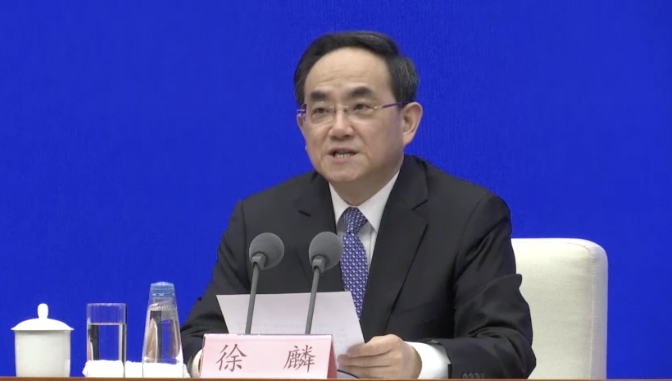
JD Health doctors use computers to chat online as they consult with patients at the JD.com headquarters in Beijing, on March 27, 2020. /AP
JD Health doctors use computers to chat online as they consult with patients at the JD.com headquarters in Beijing, on March 27, 2020. /AP
China has vowed to continue advocating globalization and multilateralism amid the coronavirus pandemic and in its aftermath, according to the white paper titled "Fighting COVID-19: China in Action" published by State Council Information Office on Sunday.
The coronavirus pandemic has reshaped the narrative of globalization, but cooperation is still important. The white paper pointed out that some countries are promoting the ideas of "decoupling," "erecting walls," and "de-globalization," which will not only tear the world apart, but also harm the country itself.
The white paper also emphasized that China is working with other countries and international organizations to prepare for future global health emergencies and improve the global health system in an efficient and sustainable way to benefit all mankind.
It added that China has always been resolutely opposed to the stigmatization and politicization of the coronavirus.
A global mission to defeat the pandemic
In the global cooperation section of the white paper, China expressed its appreciation to the world in support of China's battle against the coronavirus.
In March, the BRICS New Development Bank (NDB) announced the approval of an emergency loan of seven billion yuan (about one billion U.S. dollars) to China to help fight COVID-19.
The following month, the Asian Infrastructure Investment Bank (AIIB) approved a sovereign-backed loan of 2.485 billion yuan (about 355 million U.S. dollars) to help upgrade China's sustainable public health infrastructure and provide emergency equipment and supplies.
Despite domestic pressure in containing the coronavirus, China has been doing its best to contribute to the global battle against the pandemic, especially in helping developing countries.
Since the outbreak, China has sent two batches of cash, totaling 50 million U.S. dollars, to the World Health Organization (WHO). Additionally, China acted upon the Debt Service Suspension Initiative of G20, announcing the suspension of debt repayments from 77 developing countries.
Besides these funds, China will also help establish a global humanitarian emergency warehouse hub in China, along with a cooperation mechanism for Chinese hospitals to pair up with 30 African hospitals.
As of May 31, China has sent 29 medical expert groups to 27 countries, and has provided assistance to 150 countries and four international organizations.
06:55

Information sharing
The white paper outlined China's information sharing framework with the international community from the onset of the coronavirus pandemic.
Related reading:
Timeline: How did China warn the world about the coronavirus outbreak?
Expert: China reported COVID-19 outbreak to WHO on Jan. 3
China has also provided guidance for foreign medical aid personnel stationed in 56 countries. It has carried out epidemic prevention and control work, technical advice and health education to foreign residents and overseas Chinese in these countries.
So far, China has held more than 400 online and offline training sessions and courses for local governments, enterprises, private institutions, and individuals through various channels to more than 150 countries, as well as regional and international organizations.
The National Health Commission (NHC) compiled information about diagnosis, treatment, prevention and control solutions of the coronavirus into a booklet and translated them into three languages, which have been shared with more than 180 countries and more than 10 international and regional organizations around the world.
Chinese media also initiated TV programs like "COVID-19 Frontline," "Answer Bank," and the newspaper column "Fighting COVID-19 the Chinese Way" and other programs on various media platforms to share data and experience with the rest of the world.
Chinese medical institutions, disease control institutions, and scientists have published dozens of high-level papers in internationally renowned academic journals such as The Lancet, Science, Nature, and New England, and released clinical characteristics, interpersonal transmission risks, and data concerning the first batch of novel coronavirus patients for research purposes.
The white paper stressed that China will continue to deepen international cooperation, share information and experience with the WHO and relevant countries in a timely manner, and work to jointly fight the epidemic.